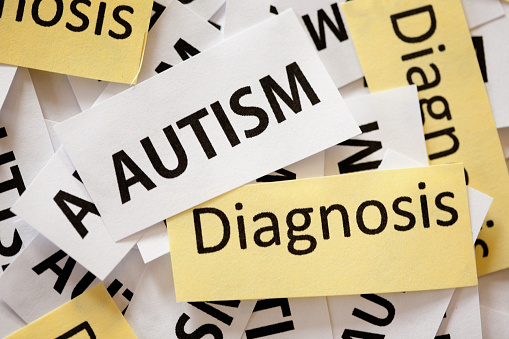Autism spectrum disorder (ASD) is a complex neurodevelopmental condition that affects individuals differently, presenting challenges in social interaction, communication, and behavior. As our understanding of autism continues to evolve, so do the approaches to diagnosis and treatment. One question that often arises is whether individuals should consult a neurologist for autism-related concerns. In this post, we will talk about the intersection of neurology and autism, exploring the role of neurologists in diagnosing and managing this condition.
Understanding Autism Spectrum Disorder
Before delving into the role of neurologists in the diagnosis and treatment of autism, it’s crucial to understand the nature of the disorder itself. Autism is a spectrum disorder, meaning it encompasses a wide range of symptoms, abilities, and levels of impairment. While some individuals with autism may have significant challenges that require lifelong support, others may exhibit milder symptoms and lead relatively independent lives.
The exact cause of autism remains unclear, but it is widely believed to involve a combination of genetic and environmental factors. Research suggests that abnormalities in brain structure and function play a significant role in the development of autism, highlighting the relevance of neurology in understanding this condition.
Does a Neurologist Diagnose Autism?
One common question among individuals and families grappling with autism is whether a neurologist is the right professional to diagnose the condition. While neurologists specialize in the diagnosis and treatment of disorders affecting the nervous system, including the brain, nerve pain, spinal cord, and nerves, the diagnosis of autism typically falls within the purview of developmental pediatricians, child psychologists, and psychiatrists who specialize in neurodevelopmental disorders.
the condition. While neurologists specialize in the diagnosis and treatment of disorders affecting the nervous system, including the brain, nerve pain, spinal cord, and nerves, the diagnosis of autism typically falls within the purview of developmental pediatricians, child psychologists, and psychiatrists who specialize in neurodevelopmental disorders.
However, neurologists can play a valuable role in the diagnostic process, particularly when there are concerns about neurological abnormalities or comorbid conditions such as epilepsy or intellectual disability. Neurologists may conduct comprehensive evaluations, including neurological examinations and brain imaging studies, to assess brain function and rule out other neurological conditions that may mimic or coexist with autism.
Neurologist Autism Diagnosis: The Process
When a child or adult presents with symptoms suggestive of autism, the diagnostic journey often begins with a thorough evaluation by a multidisciplinary team, which may include pediatricians, psychologists, speech-language pathologists, and occupational therapists, among others. While neurologists may not typically lead the diagnostic process, their expertise in understanding brain function can provide valuable insights into the neurological aspects of autism.
During the evaluation, the neurologist may review the individual’s medical history, conduct a physical examination, and assess neurological function, looking for signs of abnormalities that may contribute to or co-occur with autism. Additionally, neuroimaging techniques such as magnetic resonance imaging (MRI) or functional MRI (fMRI) may be employed to examine the structure and activity of the brain, providing further insights into the underlying neurobiology of autism.
Neurology and Autism: Treatment and Management
Beyond diagnosis, neurologists can play a crucial role in the ongoing treatment and management of autism, particularly when neurological issues such as seizures or sleep disturbances are present. For individuals with autism who experience seizures, neurologists may prescribe antiepileptic medications and monitor their effectiveness in controlling seizure activity. Similarly, neurologists can provide guidance and interventions for addressing sleep disorders, which are common among individuals with autism and can significantly impact overall functioning and quality of life.
Moreover, as our understanding of the neurobiology of autism advances, neurologists may be involved in exploring novel treatment approaches targeting specific neural pathways or neurotransmitter systems implicated in the disorder. From pharmacological interventions to neurorehabilitation strategies, neurology offers a diverse toolkit for addressing the complex needs of individuals with autism.
Autism Brain Scan: Exploring Neuroimaging Research
In recent years, advances in neuroimaging technology have enabled researchers to gain deeper insights into the neurobiological underpinnings of autism. Brain imaging studies, including structural MRI, diffusion tensor imaging (DTI), and functional MRI, have revealed differences in brain structure, connectivity, and activity patterns between individuals with autism and neurotypical individuals.
One area of particular interest is the examination of brain connectivity networks implicated in social cognition, language processing, and sensory integration—the domains commonly affected in autism. By examining functional connectivity patterns using techniques such as resting-state fMRI, researchers have identified alterations in the connectivity of brain regions involved in social communication and emotional processing in individuals with autism.
While neuroimaging research has provided valuable insights into the neural correlates of autism, translating these findings into clinical practice remains a challenge. Nonetheless, neurologists and neuroscientists continue to collaborate on research initiatives aimed at unraveling the complexities of autism and developing targeted interventions based on our growing understanding of its neurobiological basis.
Considerations to Keep in Mind
While there are potential benefits to consulting a neurologist for autism, it’s essential to consider a few key factors:
1. Individual Needs: Every individual with autism is unique, and what works for one person may not work for another. It’s essential to consider the specific needs and challenges of the individual when deciding whether to see a neurologist.
2. Collaborative Approach: Autism is a complex condition that often requires a multidisciplinary approach to treatment and care. Consulting a neurologist in Fort Lauderdale should be part of a broader care team that includes pediatricians, psychologists, therapists, and educators working together to support the individual’s needs.
3. Availability and Accessibility: Depending on where you live, access to neurologists with expertise in autism may vary. It’s essential to consider the availability and accessibility of neurologic services in your area when making decisions about seeking consultation.
Together, We Thrive: Connect for Personalized Autism Support.
In conclusion, consulting a neurologist for autism can offer potential benefits in terms of comprehensive evaluation, treatment planning, management of co-occurring conditions, and access to research and innovation. To schedule a consultation, contact us at (954) 329-0053. However, it’s essential to approach this decision thoughtfully, considering the individual’s specific needs, the collaborative nature of care, and the availability of neurologic services. Ultimately, the goal is to provide the best possible support and care for individuals with autism, helping them thrive and reach their full potential. Dr. Jeff Steinberg.

